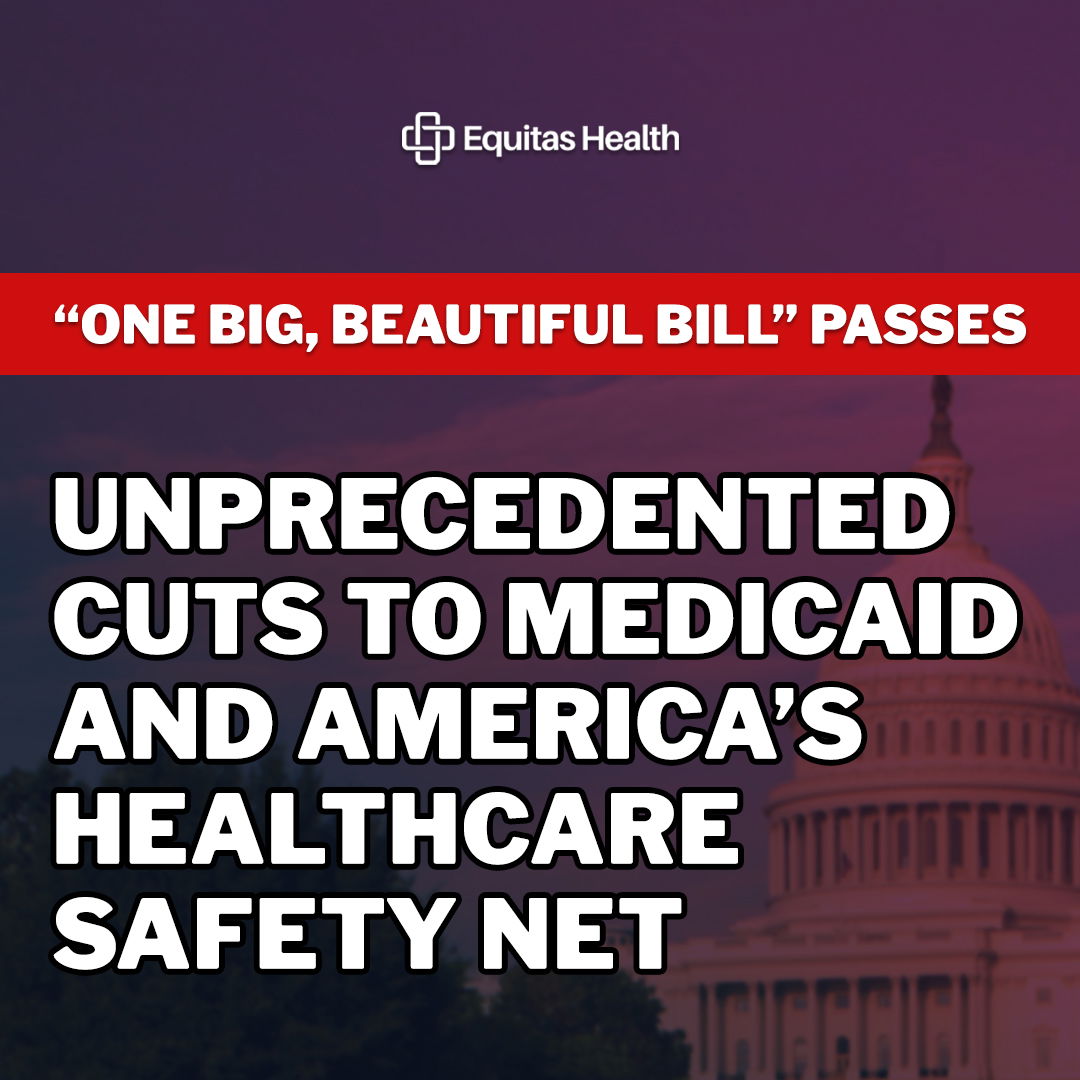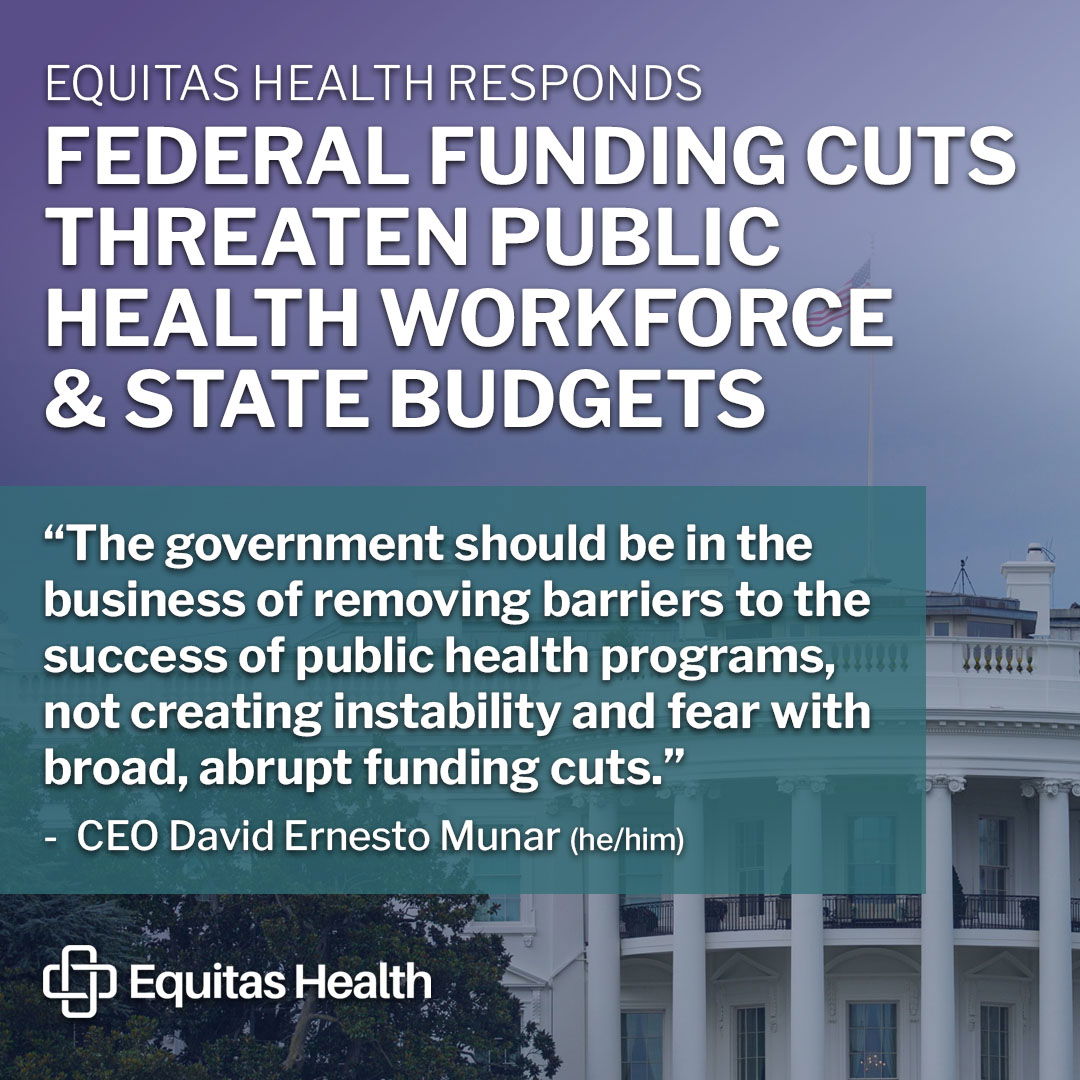Public Statement 7/30/20
Equitas Health – a longtime active member of AIDS United – proudly supports AIDS United’s participation in the Federal AIDS Policy Partnership’s letter to the Centers for Disease Control and Prevention calling for a declaration of Racism as a Public Health Crisis. You can read a full copy of the letter below.

Blog 12/18/25




Public Statement 3/28/25

Declare Racism a Public Health Crisis
July 30, 2020
Robert Redfield, MD
Director
Centers for Disease Control and Prevention
1600 Clifton Road NE
Atlanta, GA 30329
Dear Dr. Redfield,
As leaders in the public health community, the 38 organizations below stand in solidarity with the over 1,200 current Centers for Disease Control and Prevention (CDC) employees who signed this letter to the agency’s senior leadership. Per their request, we ask you to:
We must hold our Federal partners accountable to the same demands we ask of communities across this country. The time is now to demand and expect change from our Federal partners. We have to address the structural barriers that keep people out of care and services that could improve their health outcomes. This is built on trust and accountability. We know the CDC understands this as its research and grants require external actors to outline how they are going to work with communities and affected groups. However, this analysis and reflection seem to be absent from their internal works. Long-term public health accountability includes diversifying the workforce, but also supporting the diverse workforce currently in place comprised of those directly impacted by systemic racism. Accountability strategies must include listening to, prioritizing, and operationalizing responses to the concerns of public health professionals of color. The time and resources spent advocating for equitable working conditions delay targeted and culturally relevant public health responses and further devalue Black and Brown lives. The consistent need for advocacy places a burden and negative mental health impact on public health professionals of color, who are often expected to persuade institutions to respond appropriately.
As public health organizations, we must also actively work to dismantle systems of racism, discrimination, prejudice, health inequity, and stigma within our own organizations and communities. We must continue to focus our work on addressing social determinants of health; we must continue to call on the Administration and Congress to invest in public health infrastructure and preserve and expand safety nets; and we will continue to fight for accessible and equitable health care, housing, education, and employment. It is the responsibility of public health professionals, including the organizations signed on, to center anti-racism and health equity in our own work and to foster and demand that swift action be taken.
The urgency of immediate action and the need to center anti-racism efforts in our public health responses is highlighted by the COVID-19 pandemic that is disproportionately impacting Black lives. Communities of color in the U.S. are also disproportionately impacted by HIV, STDs, and hepatitis. African Americans, more than any other racial/ethnic group, continue to bear the greatest burden of HIV in the U.S. Recent COVID-19 data shows that Black communities in the U.S. are experiencing higher rates of hospitalization and death compared to whites –exacerbated by many of the same health disparities that impact the HIV care continuum.
As your public health partners, it is critical that CDC address these concerns. We are committed to working collaboratively with CDC to address them. If you have any questions, please contact the FAPP co-chairs, Kathie Hiers at kathie@aidsalabama.org or Mike Weir at mweir@NASTAD.org.
CC: Jonathan H. Mermin, MD, MPH, CDC/NCHHSTP
Sincerely,
ADAP Advocacy Association
Advocates for Youth
African American Health Alliance
AIDS Action Baltimore
AIDS Alabama South, LLC
AIDS Foundation of Chicago
AIDS United
American Academy of HIV Medicine
Amida Care
APLA Health
AVAC
Black AIDS Institute
CAEAR Coalition
Cascade AIDS Project
Center for Health Law and Policy Innovation
Community Access National Network (CANN)
Cush Health Impact
Food is Medicine Coalition
GLMA: Health Professionals Advancing LGBTQ Equality
God’s Love We Deliver
Health GAP
Health Services Center
HealthHIV
Human Rights Campaign
NASTAD
National Black Gay Men’s Advocacy Coalition
National Coalition of STD Directors
National Working Positive Coalition
NMAC
North Carolina AIDS Action Network
Positive Women’s Network-USA
Prevention Access Campaign
San Francisco AIDS Foundation
Southern AIDS Coalition
Southern Black Policy and Advocacy Network
The AIDS Institute
The Well Project
Treatment Action Group

Blog 1/8/26

Blog 12/18/25